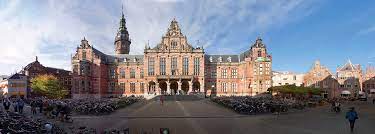University of Groningen’s Roos and Poolman Awarded NWO M-1 Grants
The Dutch Research Council (NWO) has awarded M-1 grants in the Exact and Natural Sciences domain to Prof. Wouter Roos and Prof. Bert Poolman of the Faculty of Science and Engineering (RUG). Both will receive EUR 375,000. Roos for research on how a virus assembles itself, Poolman for research on mechanisms in living cells.
M-grants are intended for innovative and high-quality research with scientific urgency. An M-1 grant is awarded to projects led by a single researcher.
Unraveling building blocks viruses
Prof. Roos and his research group will study particle by particle how a virus is formed, also known as viral self-assembly. Much is still unknown about the course of this process. By using an advanced probe microscope – of which there are only a few in the Netherlands – to follow this process live, the group wants to unravel how the building blocks of viruses are glued together so efficiently. In addition to new fundamental knowledge about how viruses are put together, this will also provide clues for developing new antiviral drugs that block virus assembly.
Understanding mechanisms living cells
With a multidisciplinary team of scientists prof. Poolman will design and analyze such minimal cells to delineate underlying mechanisms of homeostasis and discover emerging properties of complex biological systems. They will focus on systems for fueling of cells and controlling internal chemical conditions. The complexity of living cells makes it difficult to uncover the intricacies of biological mechanisms and to untangle causes and consequences of processes. The exchange of molecules between cellular compartments and between cells and the environment requires well-balanced fluxes to support growth and division, while maintaining stable internal physical and chemical conditions. Poolman builds model systems that make it possible to understand and modify essential mechanisms of living cells. Understanding these biological mechanisms in living cells will help with their application and engineering in, for example, the optimization of productivity in industrially important (micro)organisms.

